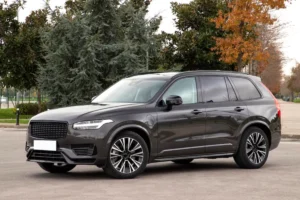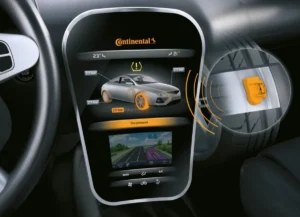The Automobiles Blog

The Rise of Hydrogen-Powered Cars: What You Need to Know
Hydrogen Fuel Cell Cars: A Hot Choice for Zero-Emission Transport
The automotive industry is shifting towards sustainability. Hydrogen fuel cell cars are now key players in the race for zero-emission transport.
Battery-electric vehicles (EVs) have gained popularity due to plug-in hybrids and all-electric cars. However, hydrogen-powered cars remain an option. This leaves us with the choice of hydrogen versus electricity. Soon, green cars will provide long driving ranges and quick charging. They will also reduce emissions. But for now, some challenges remain.
In this guide, we’ll examine hydrogen-powered cars, compare them to EVs, and discuss their future in the automotive industry.

1. What Are Hydrogen Fuel Cell Cars?
Hydrogen fuel cell vehicles (FCVs) use hydrogen gas. This gas creates electricity, which then powers an electric motor. Hydrogen cars are different from battery-electric cars. They don’t store energy in a lithium-ion battery. Instead, they generate their electricity on demand using a fuel cell.
How Hydrogen Cars Work:
- Hydrogen gas is stored in a high-pressure tank.
- A fuel cell converts hydrogen into electricity by combining it with oxygen from the air.
- The electricity powers an electric motor, similar to an EV.
- Water vapour is the only emission, making it an environmentally friendly option.
Hydrogen technology is a strong alternative to regular combustion engines and battery-electric vehicles. It’s beneficial for long trips and commercial use.

2. Hydrogen vs. Electric Vehicles: How Do They Compare?
Hydrogen fuel cell cars and battery-electric vehicles (EVs) aim to cut carbon emissions, but they have key differences.
| Feature | Hydrogen Fuel Cell Cars | Battery Electric Vehicles (EVs) |
| Power Source | Hydrogen fuel cell | Lithium-ion battery |
| Refueling/Charging Time | 3-5 minutes | 30 minutes to several hours |
| Driving Range | 300-400+ miles | 200-400 miles |
| Infrastructure | Limited hydrogen stations | Widespread charging networks |
| Emissions | Zero emissions (only water vapour) | Zero emissions (depending on electricity source) |
| Efficiency | Less efficient due to energy conversion | More efficient but limited by battery capacity |
| Vehicle Cost | Higher due to fuel cell technology | Generally more affordable |
EVs have better infrastructure now. However, hydrogen cars offer quick refuelling and a long-range, making them great for commercial fleets and heavy-duty transport.

3. Benefits of Hydrogen Fuel Cell Cars
Hydrogen-powered vehicles offer many benefits. They could play an essential role in the future of green cars.
Key Benefits:
- Zero Emissions – Hydrogen cars only emit water vapour, making them eco-friendly.
- Fast Refueling – Unlike EVs, hydrogen vehicles can refuel in minutes.
- Long Driving Range – Comparable to gasoline vehicles, reducing range anxiety.
- Lightweight Design – No need for heavy batteries, improving efficiency.
- Scalability – Ideal for trucks, buses, and other commercial applications.
Hydrogen cars can refuel quickly and travel far, making them a great choice for industries that need constant transportation.
4. Challenges Facing Hydrogen Cars
Hydrogen fuel cell cars have great potential, but they face many challenges, which slow their widespread use.
Major Challenges:
- Limited Infrastructure – Hydrogen fueling stations are scarce compared to EV chargers.
- High Production Costs – Fuel cell technology remains expensive to manufacture.
- Energy Conversion Losses – Hydrogen production and storage require more energy than battery charging.
- Hydrogen Sourcing Issues – Most hydrogen comes from fossil fuels, not renewables.
- Consumer Awareness & Adoption – Many buyers don’t know much about hydrogen tech and are unsure about investing.
- To tackle these challenges, we must invest in infrastructure, improve technology, and raise public awareness of hydrogen’s benefits.
5. Best Hydrogen-Powered Cars on the Market
Although hydrogen vehicles are still a niche market, several automakers have developed production-ready models.
Top Hydrogen Fuel Cell Cars:
- Toyota Mirai – One of the most well-known hydrogen cars, offering a range of up to 402 miles.
- Hyundai Nexo – A fuel-cell SUV with advanced driver assistance features and a 380-mile range.
- Honda Clarity Fuel Cell – A hydrogen sedan with a premium interior and smooth ride.
- BMW iX5 Hydrogen – A hydrogen-powered SUV currently in limited production.
- Mercedes-Benz GLC F-CELL – A luxury SUV that combines hydrogen fuel cells with a plug-in hybrid system.
As hydrogen infrastructure expands, we expect more automakers to introduce fuel cell models to their lineups.
6. The Future of Hydrogen Cars in the Automotive Industry
With growing interest in sustainable mobility, hydrogen-powered cars could play a crucial role in shaping the future of transportation.
Future Innovations in Hydrogen Technology:
- Green Hydrogen Production – Using renewable energy to produce hydrogen, reducing reliance on fossil fuels.
- More Efficient Fuel Cells – Improving energy conversion rates to compete with battery-electric technology.
- Expansion of Hydrogen Infrastructure – Governments and private companies investing in refuelling stations.
- Hydrogen-Powered Trucks & Buses – Large-scale commercial applications benefiting from hydrogen’s efficiency.
- Hybrid Hydrogen-Electric Vehicles – Combining battery and fuel cell technology for optimal efficiency.
With continued advancements, hydrogen vs electric vehicles may no longer be a debate but a complementary approach to reducing carbon emissions.
Conclusion: Is Hydrogen the Future of Green Cars?
The rise of hydrogen fuel cell vehicles is exciting for the automotive industry. In the debate between hydrogen and electric cars, both technologies have a legitimate place in transitioning to a cleaner future.
Last year, we described hydrogen cars as suitable for commercial fleets and long-haul transport fading away. However, they combine long-range with quick charging and are a serious contender. These technologies can’t go mainstream yet. There are hurdles in infrastructure and production costs to overcome.
As governments and automakers invest in future green cars, hydrogen technology may become a mainstream alternative to gasoline and battery-electric vehicles.
Would you consider buying a hydrogen-powered car? Let us know your thoughts in the comments below!









